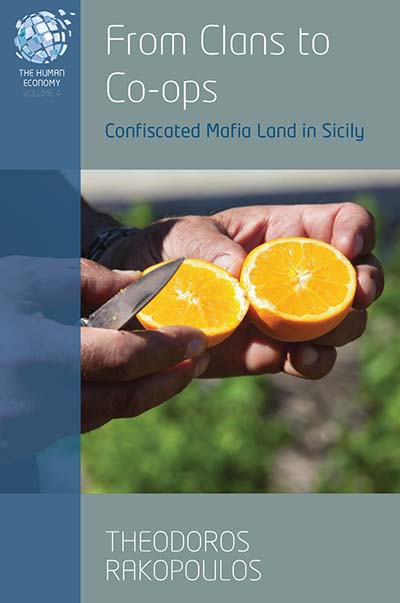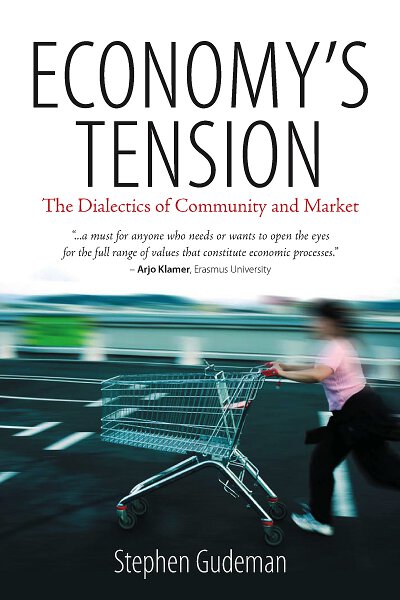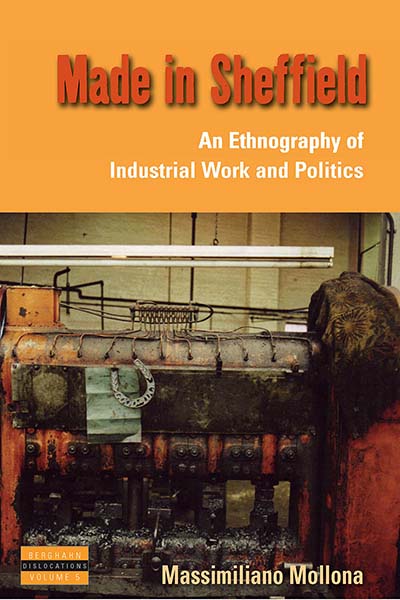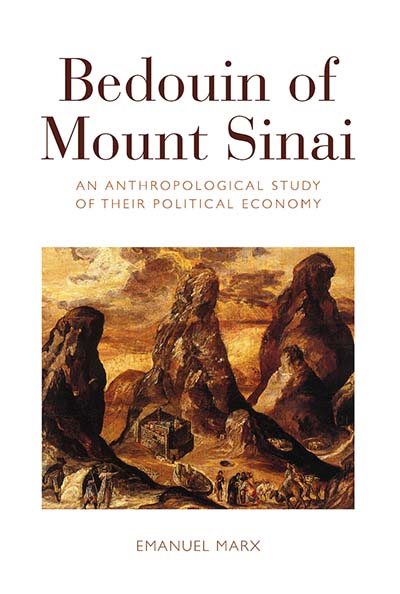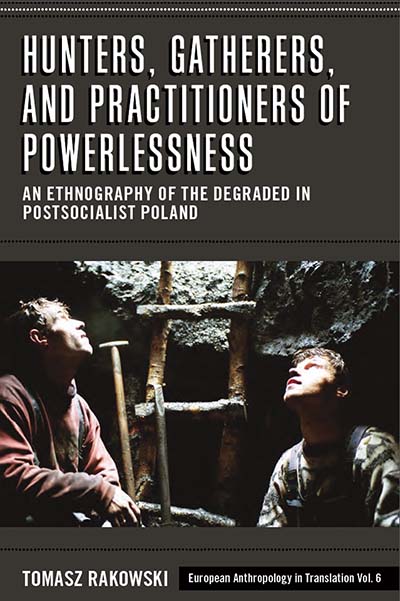
Series
Volume 6
European Anthropology in Translation
See Related
Anthropology JournalsEmail Newsletters
Sign up for our email newsletters to get customized updates on new Berghahn publications.
Hunters, Gatherers, and Practitioners of Powerlessness
An Ethnography of the Degraded in Postsocialist Poland
Tomasz Rakowski
Translated from Polish by Søren Gauger
Foreword by Jan Kubik
332 pages, 20 illus., bibliog., index
ISBN 978-1-78533-240-1 $135.00/£104.00 / Hb / Published (October 2016)
ISBN 978-1-78920-534-3 $34.95/£27.95 / Pb / Published (August 2019)
eISBN 978-1-80758-765-9 eBook
Reviews
“[T]his book is a treasure that will be mined by anyone interested in the human costs of Poland’s market economy, in comparative studies of postsocialist societies, and in experiences of marginalization, de-industrialization, and de-modernization around the world… As an example of anthropology at home, this book raises many important issues of theory and method.” • Journal of the Royal Anthropological Institute (JRAI)
“The virtue of Rakowski’s book lies in his exact observation and the way the author pays attention to the way change is experienced – bodily, metaphorically, in everyday practices and yearning – and he links them to symbolic meaning and patterns of thought and behaviour, both synchronically and diachronically.” • Anthropological Journal of European Cultures
“In Hunters, Gatherers, and Practitioners of Powerlessness, Rakowski has produced a haunting and beautiful book. The ethnographic writing is extraordinary. It is an unusual skill, to be able to write about degradation but also to convey the dignity of individual lives. Anyone interested in postsocialism, poverty, or economic anthropology more generally should read this book.” • Journal of Anthropological Research
“Tomasz Rakowski presents a theoretically reflective and empirically rich ethnographic study of ‘the degraded’ in three geographical locales in Poland which were ravaged by change… [His] study does these people justice and represents a significant intellectual achievement.” • Slavonic and East European Review
“With a very unique voice and perspective, the ethnographer examines the phenomenology and ontology of postsocialist Poland, where people have been driven to an almost pre-modern (the author even says pre-Neolithic) mode of existence, reformulating their experience of the environment and their relationship to objects created and abandoned by the retreating industrial system.” • Anthropology Review Database
“This is an important book that is both theoretically insightful and ethnographically rich. It provides a look into the “other side” of the postcommunist, neoliberal transformation in Poland, focusing on those who experienced social degradation—they lost social status as the country has gained position in the global economy.” • Marysia Galbraith, University of Alabama
“Rakowski is consistent in following his outlined path, trying to return the culture of poverty its human, inner face. Hermeneutical evidence, backed by extraordinary field work experience and thick description, give desired results. Polish ethnological tradition combined with inspirations drawn from world-class anthropologists, the achievements of Polish researchers of poverty and the classics of sociology and philosophy, result in a work of unquestionable research and intellectual value. A real breakthrough in studies on marginalised people, victims of progress.” • Michał Buchowski, Adam Mickiewicz University in Poznań, European University Viadrina
“In his book Rakowski studies the most tragic dimension of the postcommunist condition, by immersing himself in the lives of those who experienced the total, if temporary, collapse of the economic and social foundations of their existence. He produces three nuanced ethnographies of social and economic resilience in the face of not just an economic collapse but also a cultural catastrophe. [...]Rakowski, an heir to the tradition of Bronisław Malinowski and Florian Znaniecki, takes it to a new level, enriching it not only with the results of his own trail-blazing ethnographic work, but also with novel interpretive threads, taken for example from Marleau-Ponty’s phenomenology. It is hard to find a better ethnographic example of the work that is 'ontological' in its spirit.” From the foreword, Jan Kubik, University College London, School of Slavonic and East European Studies
Description
The socio-economic transformations of the 1990s have forced many people in Poland into impoverishment. Hunters, Gatherers, and Practitioners of Powerlessness gives a dramatic account of life after this degradation, tracking the experiences of unemployed miners, scrap collectors, and poverty-stricken village residents. Contrary to the images of passivity, resignation, and helplessness that have become powerful tropes in Polish journalism and academic writing, Tomasz Rakowski traces the ways in which people actively reconfigure their lives. As it turns out, the initial sense of degradation and helplessness often gives way to images of resourcefulness that reveal unusual hunting-and-gathering skills.
Tomasz Rakowski is Associate Professor at the Institute of Ethnology and Cultural Anthropology, University of Warsaw. He is also a medical doctor, specialist in Accident & Emergency medicine. He conducts fieldwork in Poland and Mongolia.

